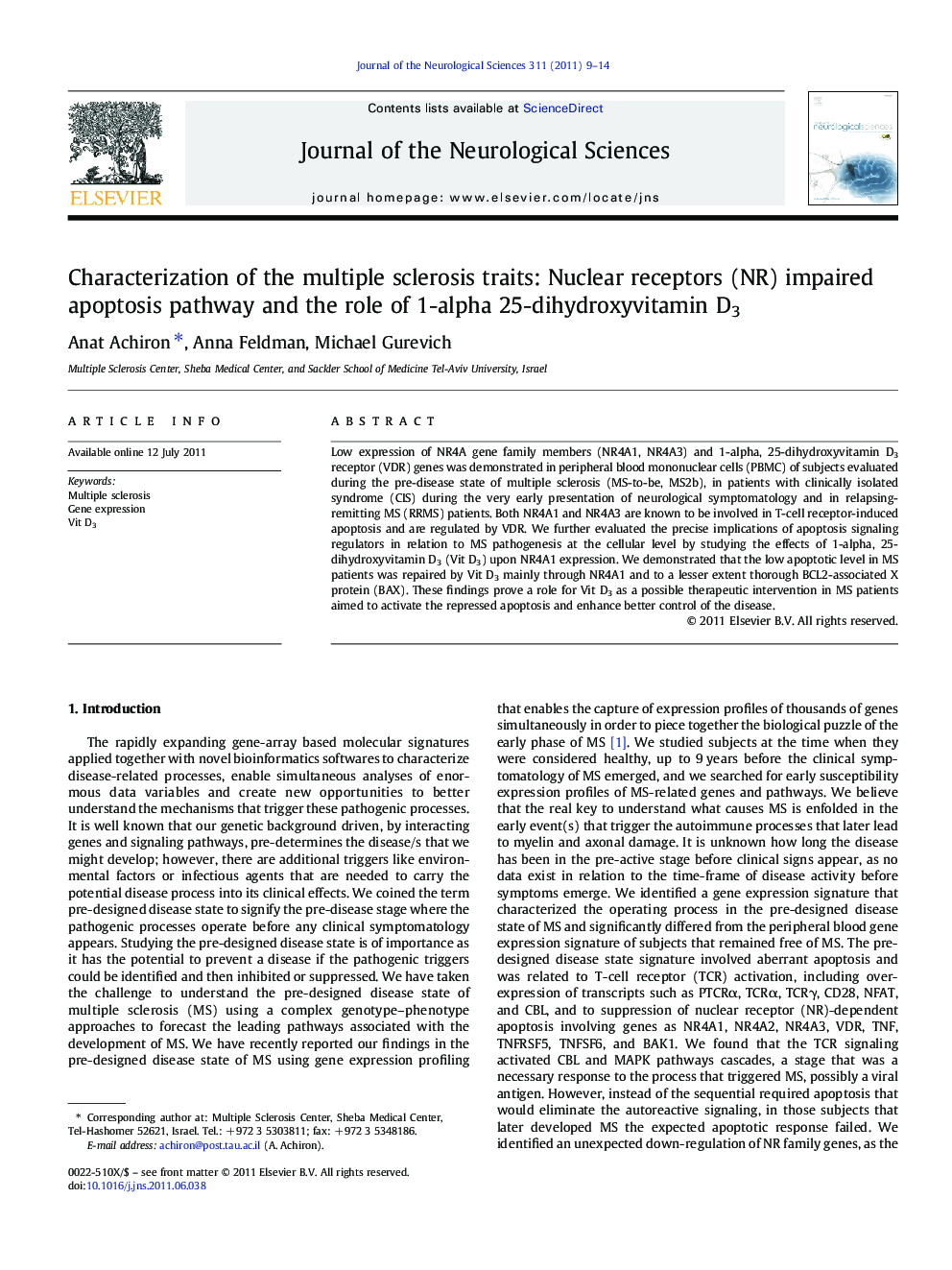| Article ID | Journal | Published Year | Pages | File Type |
|---|---|---|---|---|
| 8281957 | Journal of the Neurological Sciences | 2011 | 6 Pages |
Abstract
Low expression of NR4A gene family members (NR4A1, NR4A3) and 1-alpha, 25-dihydroxyvitamin D3 receptor (VDR) genes was demonstrated in peripheral blood mononuclear cells (PBMC) of subjects evaluated during the pre-disease state of multiple sclerosis (MS-to-be, MS2b), in patients with clinically isolated syndrome (CIS) during the very early presentation of neurological symptomatology and in relapsing-remitting MS (RRMS) patients. Both NR4A1 and NR4A3 are known to be involved in T-cell receptor-induced apoptosis and are regulated by VDR. We further evaluated the precise implications of apoptosis signaling regulators in relation to MS pathogenesis at the cellular level by studying the effects of 1-alpha, 25-dihydroxyvitamin D3 (Vit D3) upon NR4A1 expression. We demonstrated that the low apoptotic level in MS patients was repaired by Vit D3 mainly through NR4A1 and to a lesser extent thorough BCL2-associated X protein (BAX). These findings prove a role for Vit D3 as a possible therapeutic intervention in MS patients aimed to activate the repressed apoptosis and enhance better control of the disease.
Keywords
Related Topics
Life Sciences
Biochemistry, Genetics and Molecular Biology
Ageing
Authors
Anat Achiron, Anna Feldman, Michael Gurevich,
